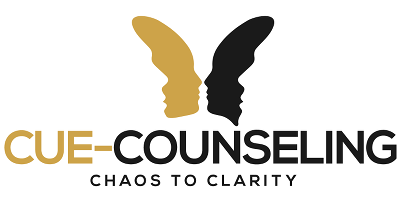Understanding Addiction: Causes, Recovery, and the Path to Healing
How to Recognize the Roots of Addiction and Begin Recovery with Compassion
In 2018, it was estimated that over 20 million people in the U.S. were living with addiction. A year earlier, nearly half of Americans reported having a close friend or family member who had battled addiction. And these numbers don’t even include behavioral addictions — such as gambling, pornography, shopping, or excessive social media use.
If you or someone you love is struggling, know this: addiction recovery starts with understanding — understanding what addiction is, what it means for you, and how to heal beyond it.
What Does Addiction Really Look Like?
Even if you don’t identify as an “addict,” you may recognize the feeling of turning to something outside yourself for relief — a drink after work, hours of binge-watching, or refreshing your social media feed for likes. On their own, these behaviors may seem harmless. But when they become compulsive, they can start to mirror the psychological patterns of addiction.
According to the American Psychological Association, addiction is:
“A state of psychological or physical dependence (or both) on the use of alcohol or other drugs… sometimes applied to behavioral disorders, such as gambling or internet addiction.”
At a neurological level, addiction alters the brain’s reward and motivation systems, forming deep patterns that reinforce repetitive behaviors — not because they’re pleasurable, but because they feel necessary to survive.
In daily life, addiction often looks like:
-
Prioritizing one substance or behavior over relationships, responsibilities, or health
-
Losing the ability to choose not to engage
-
Feeling shame, isolation, or regret — yet continuing the behavior
Is Addiction a Disease?
Many experts define addiction as a brain disease — one that is driven by both genetics and environmental factors. But the story is more complex.
Genetics and Addiction
Yes, genetics can influence addiction. But genes do not dictate destiny. Rather than causing addiction directly, they may simply increase sensitivity to stress, risk-taking, or impulsivity — which, in turn, raise the risk of developing an addiction.
What Really Causes Addiction?
Addiction is rarely about just the substance or behavior. It is often a maladaptive coping mechanism, a way to fill a deeper void.
Common Contributing Factors:
-
Early childhood trauma or neglect
-
Unmet emotional or psychological needs
-
Disconnection from others
-
Low self-esteem or shame
-
Cultural and social isolation
Addictions — whether to drugs, alcohol, sex, gambling, or gaming — often serve as a substitute for love, security, or identity. They soothe wounds and offer temporary comfort in the absence of lasting fulfillment.
Addiction and Trauma: A Hidden Connection
Addiction researcher Dr. Gabor Maté famously said,
“The question is not why the addiction, but why the pain?”
Many people with addiction histories have experienced developmental trauma, emotional neglect, or invalidation. In these cases, addiction may be less about the substance and more about what it symbolizes — comfort, relief, or a sense of being cared for.
One heroin user described the feeling of using as,
“like when you’re sick as a child and your mother wraps you in a blanket and gives you warm soup.”
Redefining Addiction Recovery
Addiction recovery is about more than just willpower. It’s about:
-
Understanding how your addiction has served you
-
Exploring the pain or disconnection underneath it
-
Reconnecting with yourself and others
-
Developing healthier ways to meet emotional needs
-
Building a meaningful, purpose-driven life
Working with a trained mental health professional can be a powerful step in this journey. Therapy offers a safe space to explore your past, reframe your identity, and replace harmful behaviors with sustainable healing practices.
Addiction Treatment at Cue Counseling
At Cue Counseling, we understand that addiction is not a moral failure — it’s often a survival strategy developed in a painful world. Our therapists work with clients to:
-
Identify the emotional and relational roots of addiction
-
Heal past traumas and rebuild self-worth
-
Establish healthy boundaries and coping strategies
-
Rediscover connection, creativity, and purpose
-
Embrace recovery as a form of personal empowerment
You are not broken — and you are not alone.
Take the First Step Toward Healing
If you suspect that you or someone you love may be dealing with addiction, reach out. Recovery begins with one step — and that step can be today.
📞 Call Cue Counseling at (863) 937-3943 to learn more about personalized addiction counseling and trauma-informed support.
Trauma Therapy: Understanding and Healing the Wounds Behind Your Behavior
